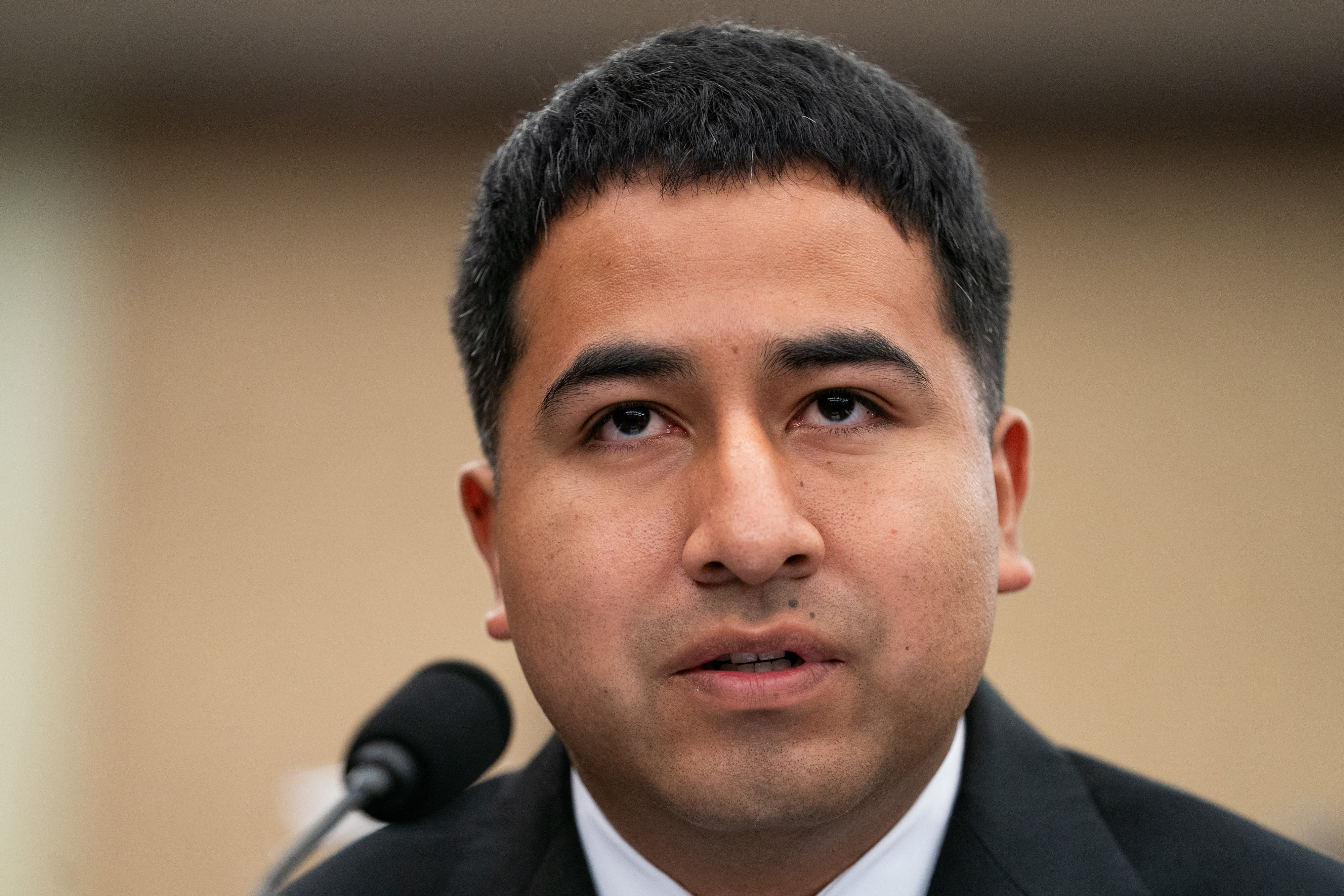They started calling it the “Nuremberg defense” when lawyers for Lt. William Calley at his court martial argued that he was only following orders in the March 1968 slaughter of hundreds of Vietnamese in what became known as the My Lai Massacre.
George Latimer, Calley’s main lawyer, cited Nuremberg in his summation, telling the court, “I could hardly stand here and tell you in good conscience that people, like at Nuremberg, could be excused or justified” in mass murder by claiming they were acting on the orders of a superior, according to court documents.
“But I think when you put untrained troops out in areas and they are told to do certain things, they have a right to rely on the judgment and the expertise [of their leaders],” Latimer said. “Then you are bound to give credence in effect to orders from their company commander.”
The argument for Calley, in what was the most high-profile court martial to come out of the Vietnam War, did not hold up. It also didn’t work at the end of World War II for the defendants at the Nuremberg war crimes tribunal, including Reichsmarschall Hermann Göring, who cheated the hangman by taking cyanide on the night he was to be executed.
Calley had taken the stand in his own defense to state that Capt. Ernest Medina, his company commander, had told him to kill everybody in the village. They were all Viet Cong or sympathizers, Calley said he was told, and Medina’s order was to “waste them.” Medina was later tried at court martial and acquitted.
Calley said he had learned in training “that all orders were to be assumed legal, that the soldier’s job was to carry out any order given him to the best of his ability.”
His understanding was that failure to follow orders could result in the death penalty, Calley said. The jury deliberated for nearly 80 hours over 13 days in 1971 before finding Calley guilty of premeditated murder.
Specification 2 of the charges stated that “at My Lai 4, Quang Ngai Province, Republic of South Vietnam, on or about 16 March 1968, with premeditation,” Calley used rifle fire to murder no fewer than 70 men and women of various ages.
Specification 4 stated that one of the victims murdered by Calley was two years old. Some estimates put the total death toll in My Lai at more than 500.

Calley was sentenced to life in prison. President Richard Nixon intervened in the case to order Calley’s removal from the stockade to house arrest at his Fort Benning apartment.
His sentence was later reduced to 10 years by Army Secretary Howard Calloway and he was paroled in 1974.
The case against Calley had its direct underpinnings in the Nuremberg trial of 22 defendants, according to Gary Solis, a Marine company commander in Vietnam who later had a long career as a judge advocate general, serving alternately as a military prosecutor, a defense lawyer and a judge.
“I believe that is the key result of Nuremberg — obedience to orders is no longer a defense to war crimes. That was not new Nuremberg law that was being created in the courtroom but rather new enforcement,” Solis told Military Times.
“That’s the basis on which they were convicted. That was new enforcement — the unspoken awareness on the part of civilized nations” of the duty to hold war criminals to account, he added.
The legacy of Nuremberg is now reflected in the U.S. Manual of Courts-Martial, which states that service members have a duty to disobey an order that “a man of ordinary sense and understanding would know to be illegal.”
Nov. 20 marks the 80th anniversary of the trial’s start at Nuremberg’s Palace of Justice.
Jackson faces off against Göring
On Aug. 8, 1945, the U.S., France, the Union of Soviet Socialist Republics (USSR) and Britain signed the London Agreement and Charter, also known as the Nuremberg Charter, which set up International Military Tribunal at the Palace of Justice in the German city of Nuremberg to try Nazi leaders on charges of crimes against peace, crimes against humanity, the crime of aggressive war and conspiracy to commit the first three crimes.
Supreme Court Associate Justice Robert H. Jackson, named by President Harry Truman as chief prosecutor in the trial, asserted that the Charter represented the first time that four victors in war had come to an agreement on “the principle of individual responsibility for the crime of attacking the international peace.”
On Nov. 21, 1945, with 22 defendants assembled in the dock, about 400 visitors in the gallery and 323 accredited members of the press in attendance, Jackson began the trial with an opening statement of surpassing eloquence.
“The privilege of opening the first trial in history for crimes against the peace of the world imposes a grave responsibility,” Jackson said. “The wrongs which we seek to condemn and punish have been so calculated, so malignant and so devastating, that civilization cannot tolerate their being ignored because it cannot survive their being repeated.”

History would give righteous affirmation to the fact that “four great nations, flush with victory and stung with injury, stay the hand of vengeance and voluntarily submit their captive enemies to the judgment of the law is one of the most significant tributes that power has ever paid to reason,” Jackson added.
The trial proceeded with an enormous amount of documentation entered into the record on the crimes of the defendants and the playing of gut-wrenching films of the liberation of the death camps by the U.S. Army Signal Corps.
In his 2025 film adaptation, “Nuremberg” director James Vanderbilt chose to focus on the interplay between the Army psychiatrist Douglas M. Kelley, played by Rami Malek, and Göring, played by Russell Crowe in a riveting performance.
Kelley’s job was to determine the mental fitness of the defendants to stand trial. The movie, however, has him coming repeatedly to Göring’s jail cell to debate the ethics of the Third Reich. At one point in the film, Malek as Kelley tells Göring “Let’s talk about Hitler. I’m curious” about what made people follow him. Crowe as Göring replied, “He made us feel German again.”
The movie also has Göring showing his contempt for the allies by telling Kelley, “You won and we lost, not because you are morally superior. In the end, you know what sets you apart from us — nothing.”
Additionally, it depicts Jackson breaking down in his cross examination of Göring only to be rescued at the last minute by David Maxwell-Fyfe, the British prosecutor, while Kelley watches in dismay from the front row of the court.
None of that happened, according to John Q. Barrett, the Benjamin N. Cardozo Professor of Law at St. John’s University and a biographer of Jackson.
Barrett, who was consulted on the movie by the producers, said that the cross examination of Göring took place in March 1946, but Kelley had returned to the states two months earlier in January.
“The movie is Hollywood and it’s fictional,” Barrett told Military Times in defending Jackson’s cross examination of Göring, although “it did have some low moments.”
There was a mistranslated document, and “Jackson had to eat that,” but there were also many authenticated documents and “many damning admissions” by Göring that established his guilt.
“They won the case,” Barrett said.
The actual transcript of the cross examination showed Jackson hammering at Göring on the will left by Adolf Hitler in his Berlin bunker before committing suicide.

“And there came a time in 1945 when Hitler made a will in Berlin whereby he turned over the presidency of the Reich to your co-defendant, Admiral [Karl] Dönitz,” Jackson said. “You know about that?”
“That is correct,” Göring replied. “I read of this will here.”
“And in making his will and turning over the government of Germany to Admiral Dönitz, I call your attention to this statement,” Jackson said. “‘Göring and [Gestapo chief Heinrich] Himmler, quite apart from their disloyalty to my person, have done immeasurable harm to the country and the whole nation by secret negotiations with the enemy which they conducted without my knowledge and against my wishes, and by illegally attempting to seize power in the state for themselves. And by that will he expelled you and Himmler from the party and from all offices of the state.’”
“I can only answer for myself,” Göring responded. “What Himmler did I do not know. I neither betrayed the Führer, nor did I at that time negotiate with a single foreign soldier. This will, or this final act of the Führer’s, is based on an extremely regrettable mistake, and one which grieves me deeply — that the Führer could believe in his last hours that I could ever be disloyal to him.
“It was all due to an error in the transmission of a radio report and perhaps to a misrepresentation which [Hitler’s private secretary Martin] Bormann gave the Führer. I myself never thought for a minute of taking over power illegally or of acting against the Führer in any way.”
Göring never wavered in his fealty to Hitler, and never apologized for being complicit in issuing and carrying out orders that led to the deaths of millions.
The contrast was striking between the unrepentant Nazi and what happened with former Lt. William Calley at age 66. At a Kiwanis club in Columbus, Georgia, in 2009, nearly 42 years after he led troops on a killing spree into the village of My Lai, Calley apologized for his part in the massacre.
“There is not a day that goes by that I do not feel remorse for what happened that day in My Lai,” Calley told members of the club, according to the Columbus, Georgia-based Ledger-Enquirer. “I feel remorse for the Vietnamese who were killed, for their families, for the American soldiers involved and their families. I am very sorry.”
Calley was then asked why, if Capt. Medina had indeed told him to kill all the villagers, he had obeyed what was clearly an unlawful order.
“If you are asking why I did not stand up to them when I was given the orders, I will have to say that I was a second lieutenant getting orders from my commander,” he said. “And I followed them — foolishly, I guess.”





